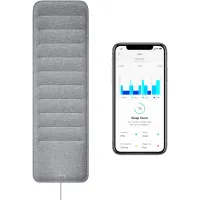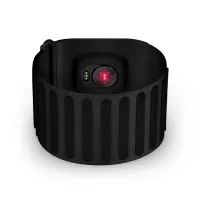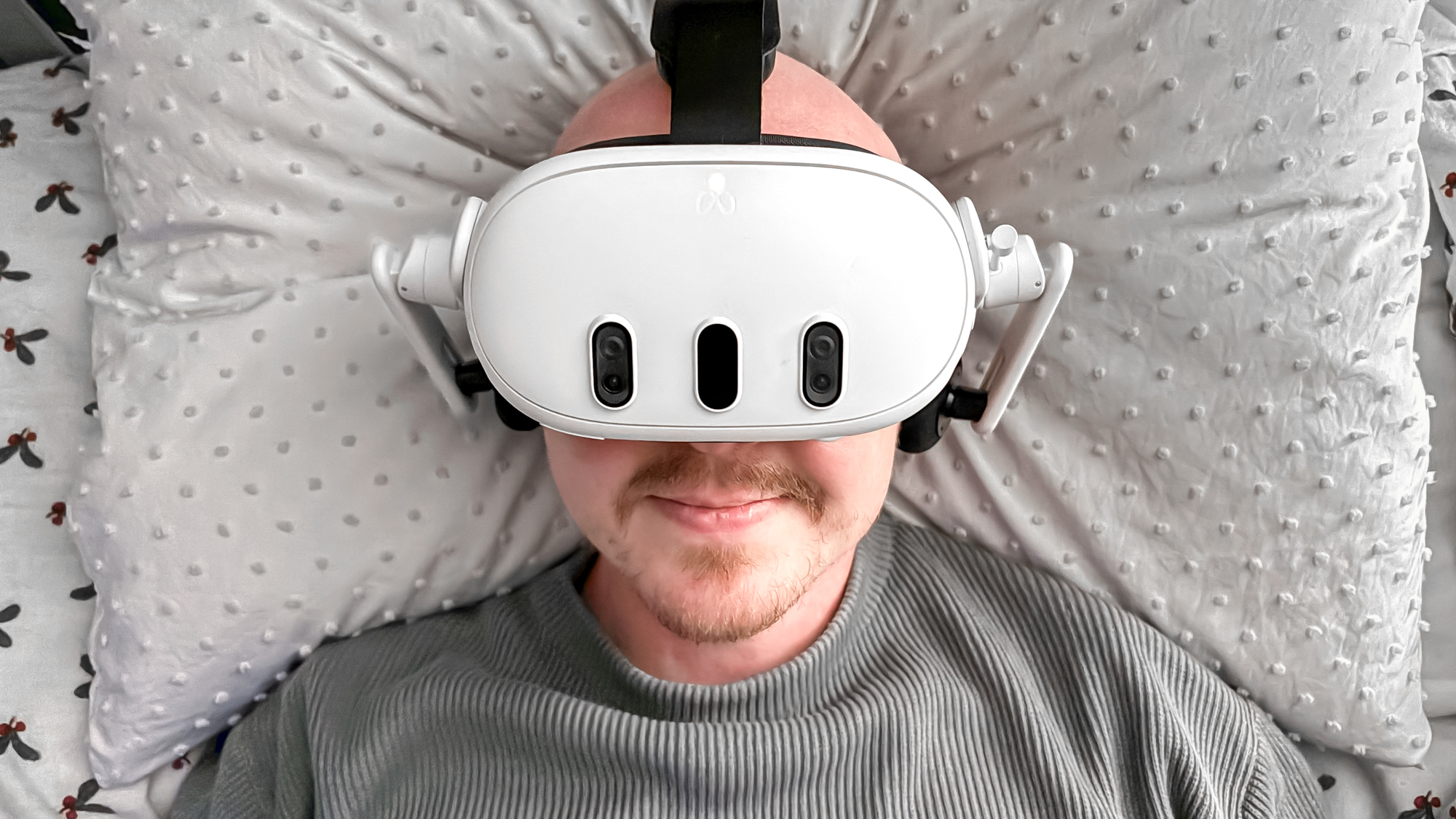Withings Sleep Analyzer vs Garmin Index Sleep Monitor: I tested each sleep tracker for two weeks — here's the one I'd actually buy
Withings vs Garmin 14-night face off: Which sleep tracker comes out on top?
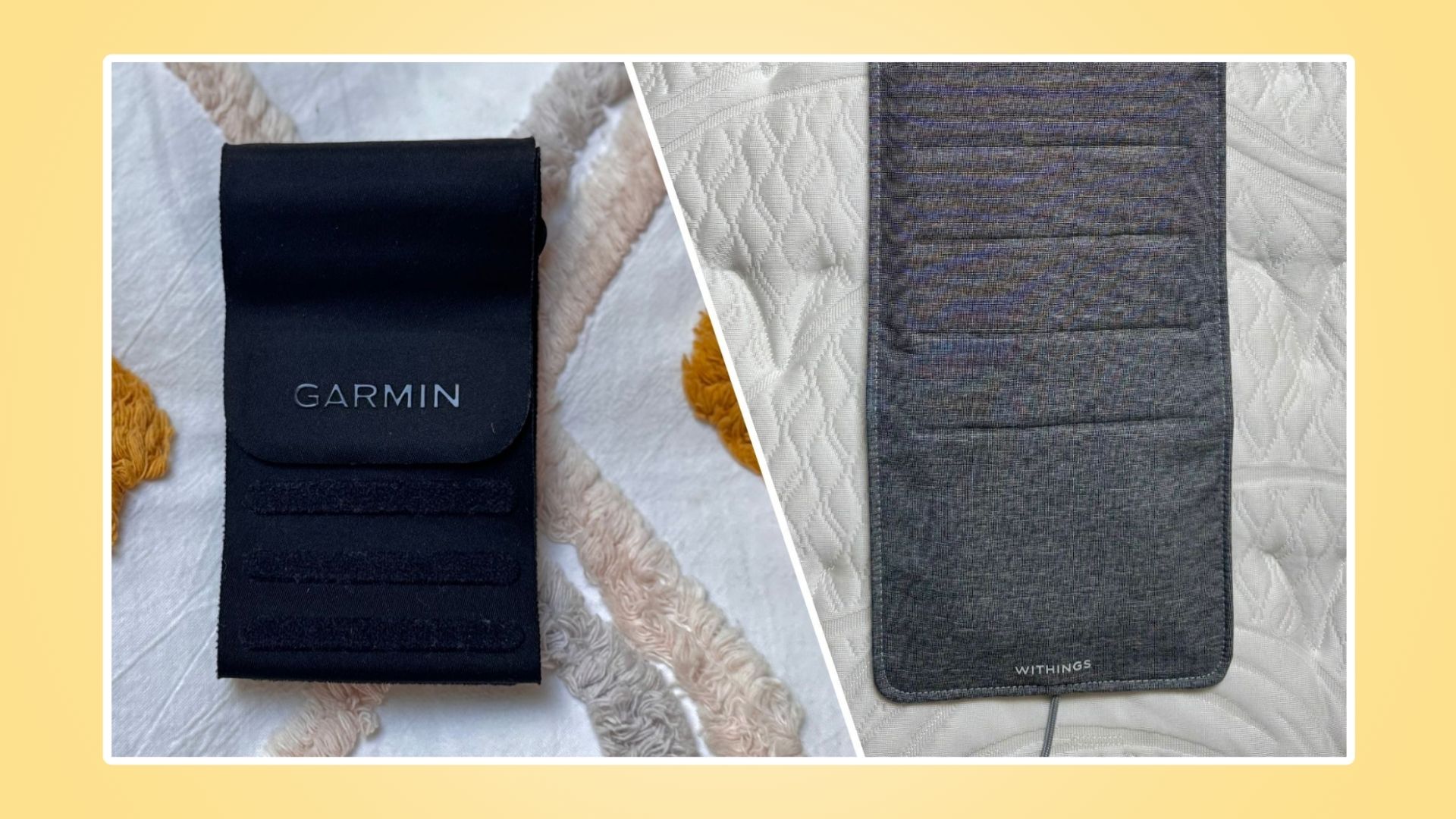
Here at Tom’s Guide our expert editors are committed to bringing you the best news, reviews and guides to help you stay informed and ahead of the curve!
You are now subscribed
Your newsletter sign-up was successful
Want to add more newsletters?

Daily (Mon-Sun)
Tom's Guide Daily
Sign up to get the latest updates on all of your favorite content! From cutting-edge tech news and the hottest streaming buzz to unbeatable deals on the best products and in-depth reviews, we’ve got you covered.

Weekly on Thursday
Tom's AI Guide
Be AI savvy with your weekly newsletter summing up all the biggest AI news you need to know. Plus, analysis from our AI editor and tips on how to use the latest AI tools!

Weekly on Friday
Tom's iGuide
Unlock the vast world of Apple news straight to your inbox. With coverage on everything from exciting product launches to essential software updates, this is your go-to source for the latest updates on all the best Apple content.

Weekly on Monday
Tom's Streaming Guide
Our weekly newsletter is expertly crafted to immerse you in the world of streaming. Stay updated on the latest releases and our top recommendations across your favorite streaming platforms.
Join the club
Get full access to premium articles, exclusive features and a growing list of member rewards.
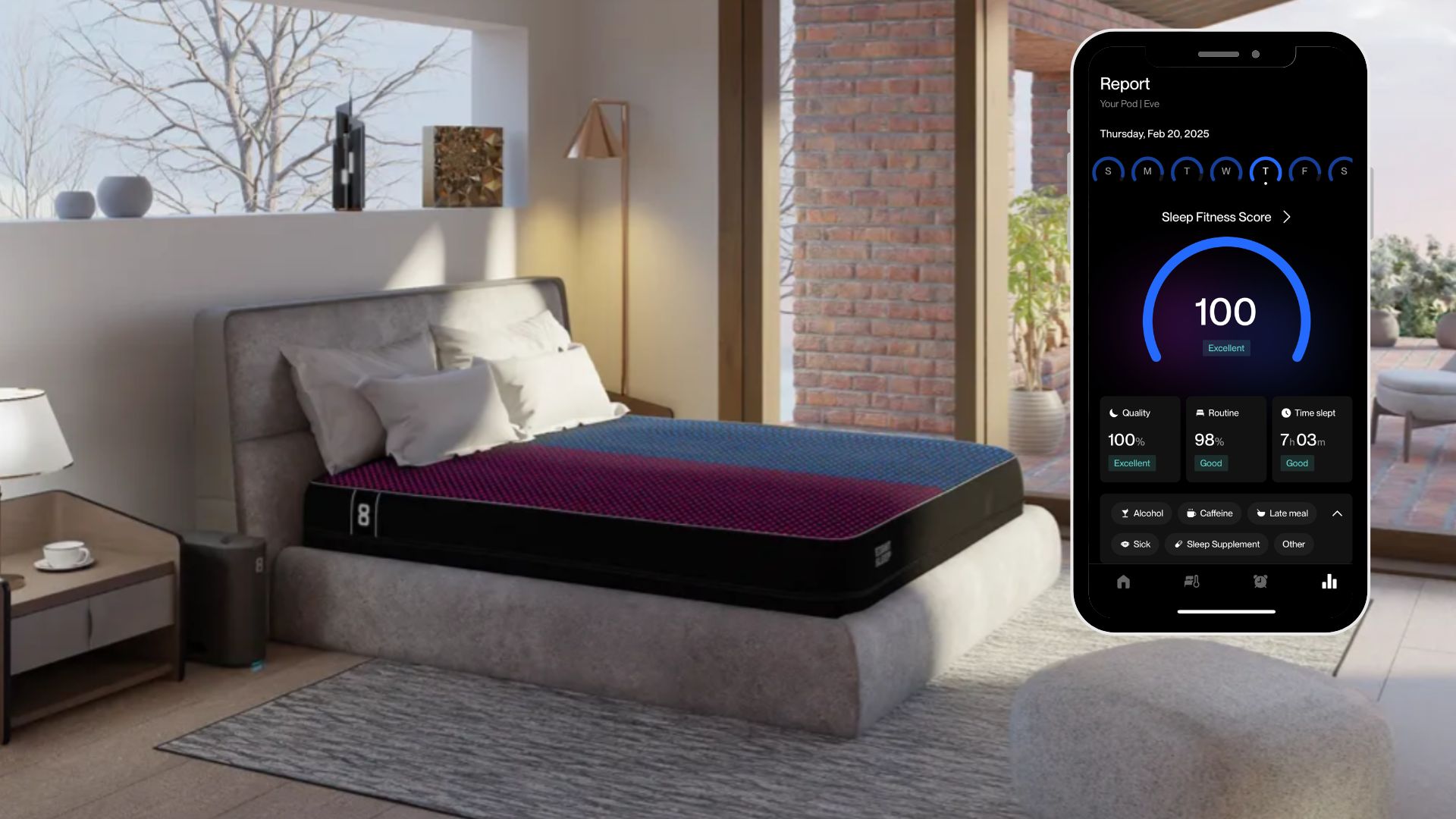
The best smart beds and mattresses are complete with integrated sleep tracking sensors, so you can get a nightly sleep report without any extra accessories
One of the best sleep trackers can hold you accountable around sticking to a consistent sleep schedule, teach you about your sleep health and coach you towards better quality slumber.
Two of the forerunners in the sleep and health tracking market are Withings and Garmin, but you're probably wondering which is right for you?
I've tested both option over a two week period (alongside Oura, Whoop and Apple) to help you decide. For me, there's a clear winner — but you might choose something different.
Ahead, I'll explore the key differences between the Withings Sleep Analyzer, a discreet under-mattress tracker, and the Garmin Index Sleep Monitor, a super comfy wearable. Let's get started...
Withings vs Garmin: Price & availability
Both sleep trackers sit at $169 MSRP in the US. But in the UK, the Withings is slightly cheaper at £129.95 than the Garmin at £149.99. Either way, it is a slightly high price for a single-purpose tracker that only records nighttime health data (you can get all-rounder smartwatches like the Fitbit Inspire 3 for much less, around $80). However, this premium price means accurate metrics and useful sleep analysis.
Withings Sleep mattress pad: from $169.95/£129.95 at Amazon
This discreet under-mattress sleep tracker will cost you $199.95/£129.95 if you buy it at Withings. However US shoppers can save $30 and get it for a more affordable $169.95 at third party retailers like Amazon.
Garmin Index Sleep Monitor: $169.99/£149.99 at Garmin
The Garmin Index Sleep Monitor is available at $169.99/£149.99 MSRP and pairs with the Garmin Connect app for a holistic view of your health.
Withings vs Garmin: Design
Design is perhaps where these two trackers differ the most. While the Withings Sleep Analyzer discreetly slides under your mattress so you won't know it's there while you sleep, you wear the Garmin Index Sleep Monitor on your upper arm through the night.
The Withings sleep tracking mat is a fabric mat that sits between your mattress and bed frame at chest level.
On the other hand, the Garmin Index Sleep Monitor is a faceless device that sits in a soft, stretchy fabric band worn on the upper arm.
Get instant access to breaking news, the hottest reviews, great deals and helpful tips.
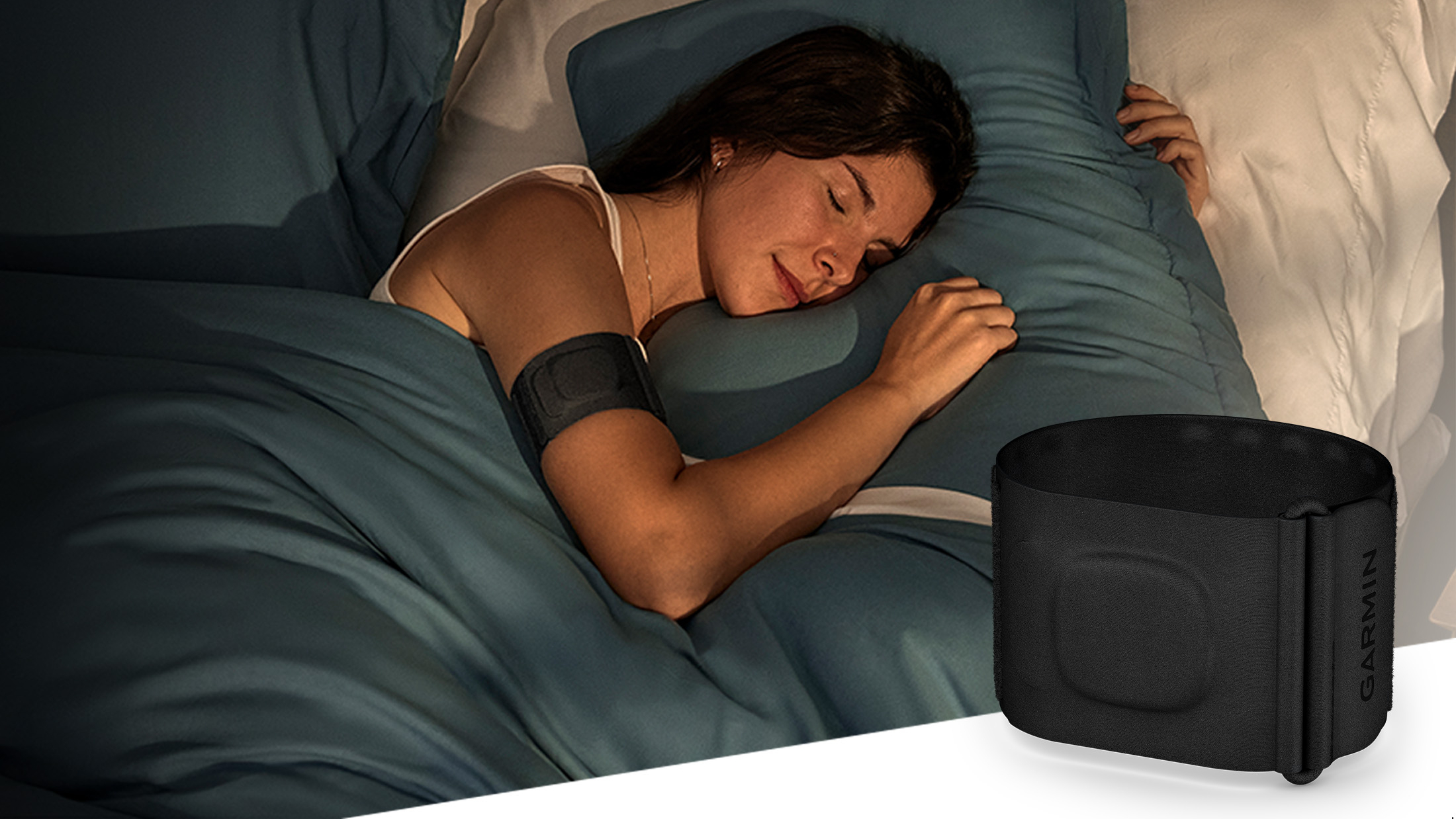
Sleeping in an armband doesn't sound particularly comfortable, but I can assure you the light-weight seamless fabric that holds the sleep sensor device is ultra comfy. Honestly, I didn't notice it was even on my arm through the night. I even got out of bed and carried on with my morning, forgetting I was wearing it on multiple occasions — it's that subtle.
It's also worth noting that while the Garmin has an impressive 10-night-plus battery life (and charges fully in two hours), you needn't worry about charging the Withings at all. It just needs to be plugged into a bedside through the night.
Winner: No matter how comfortable the Garmin wearable is, I do prefer going to bed wearable-free. Therefore, the Withings wins here.
Withings vs Garmin: Sleep tracking
Throughout my testing, sleep data accuracy has been on par between the two trackers. And both trackers cover the usual suspects: sleep duration, sleep cycles, overnight heart rate and HRV and interruptions in your sleep.
A plus-point for Withings is that it offers sleep apnea detection. It is medically-grade in the EU and pending regulatory approval in the US.
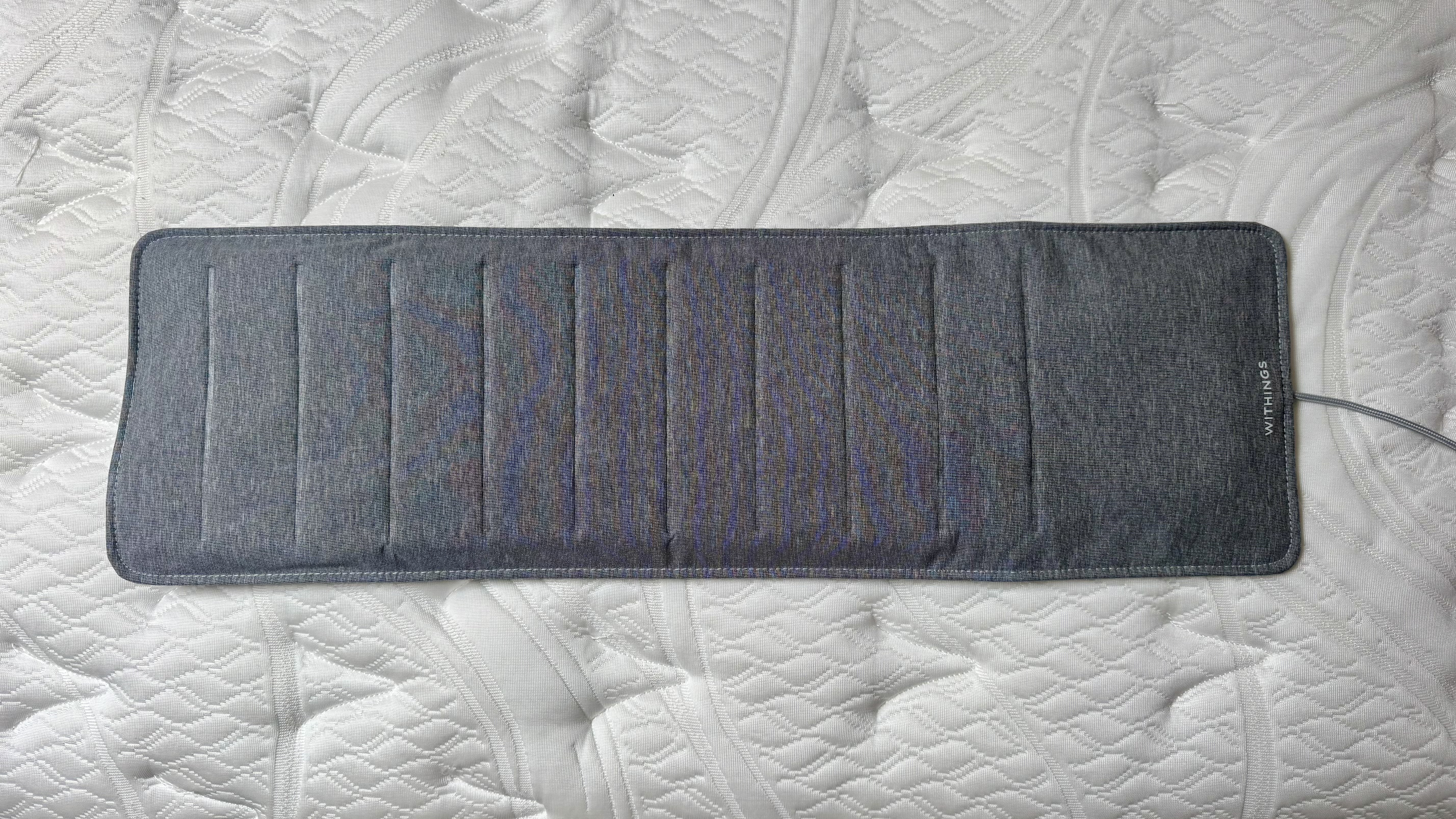
Meanwhile Garmin is more focussed on overnight breathing rates, oxygen levels and respiration rates. It is essentially more ‘nerdy’ and geared towards athletic recovery.
In terms of sleep coaching, the Garmin coach is more useful. Withings offers some general sleep tips but they are brief and often repeated from night to night.
However, Garmin's sleep coach gives you a recommended sleep time for each night based off your recent sleep timings and any sleep debt acquired.
Winner: Garmin takes the win here as it gives more personalized sleep advice.
Withings vs Garmin: The apps
The Garmin Connect app and Withings app are both user-friendly and give a comprehensive analysis of your sleep data and other health metrics with stats and visual, interactive graphs.
The Withings app pairs to Apple Health or Samsung Health and transfers activity data from these platforms so you have all your health, recovery and sleep data in one place to view trends and keep on top of what's going on in your body.
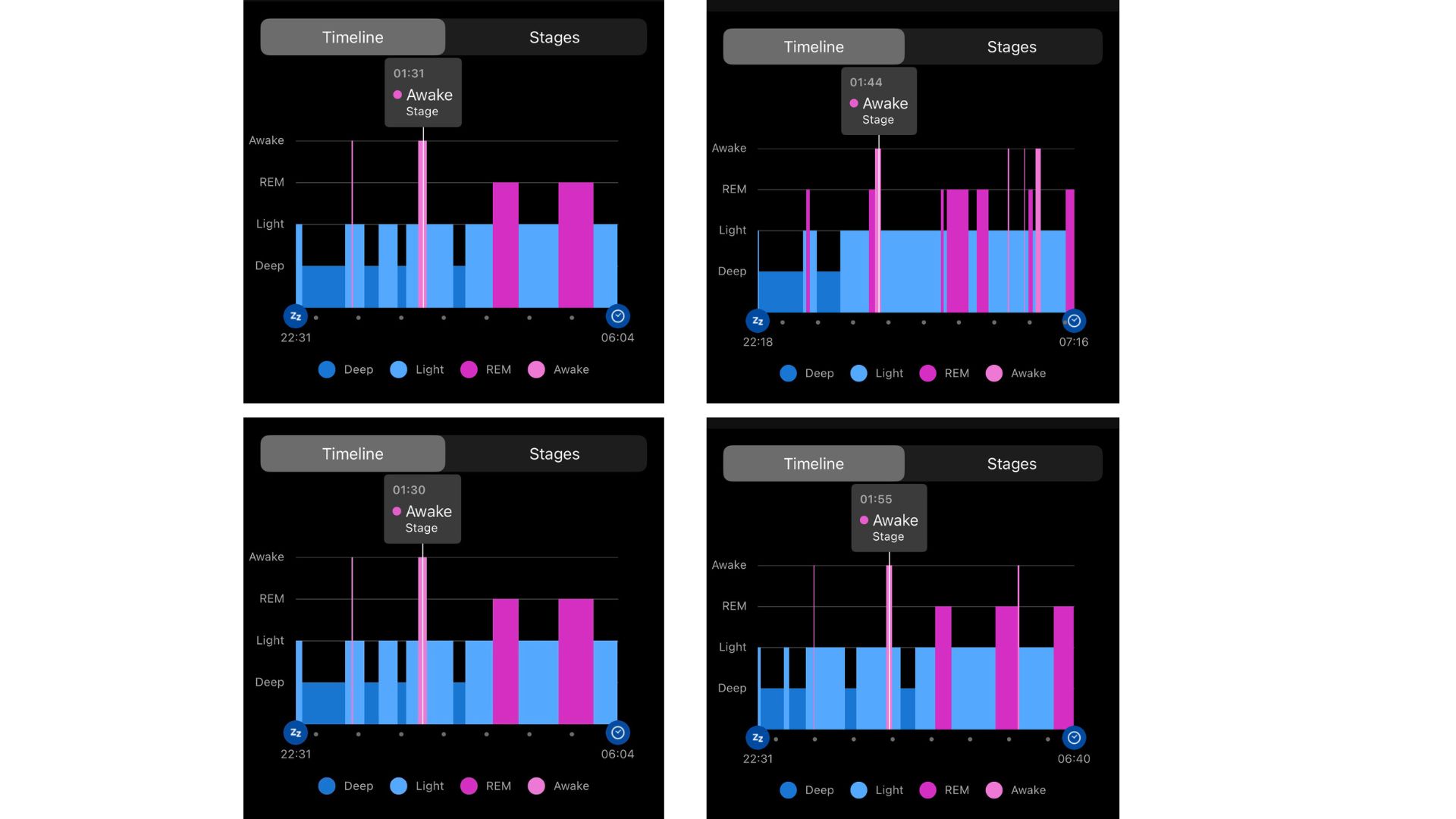
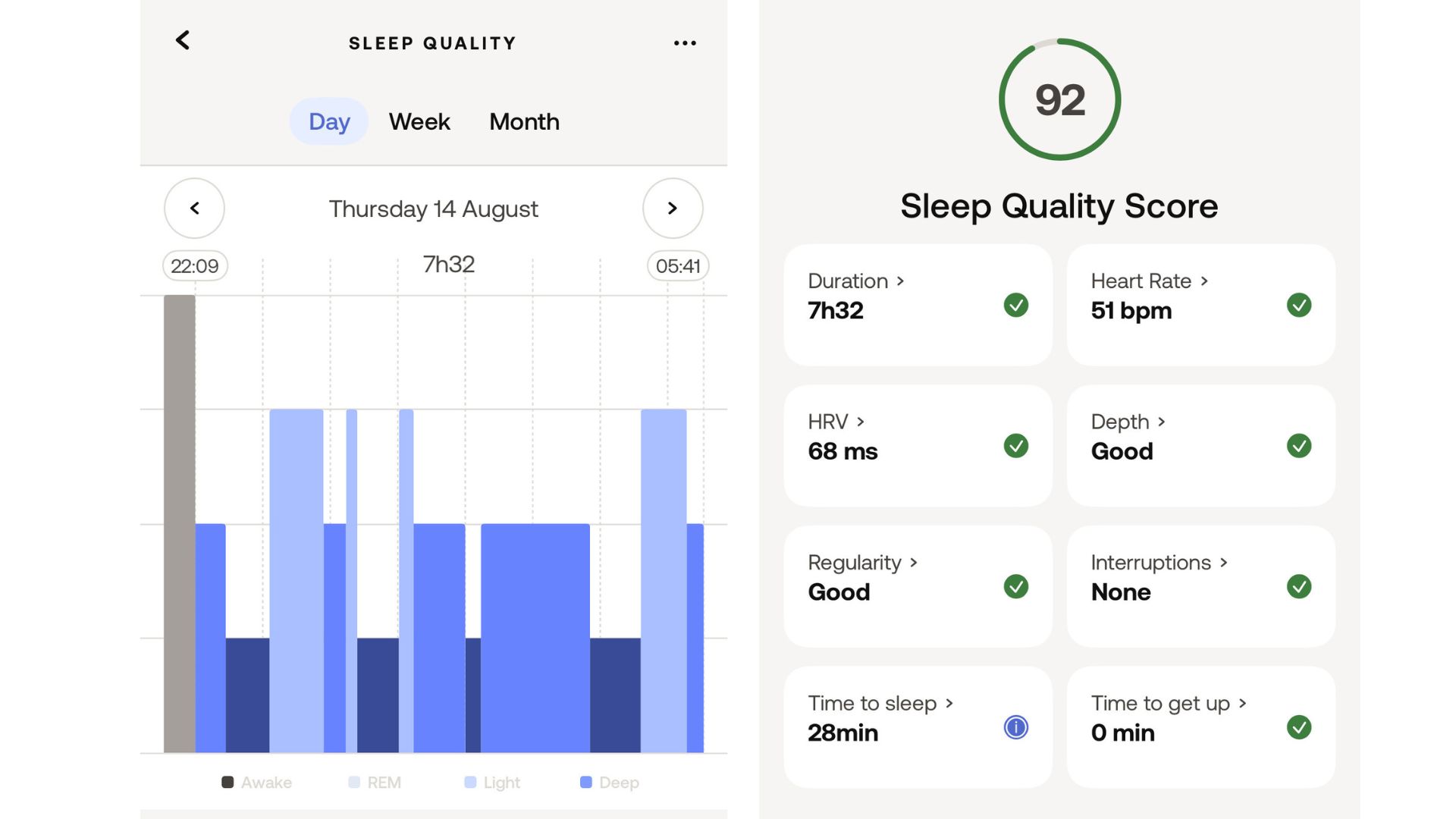
The Garmin Index Sleep Monitor also integrates your sleep data into the Garmin Connect ecosystem, but it will only show daytime activity metrics if the user wears a Garmin smartwatch by day. If you do, Garmin will evaluate your sleep data alongside your health and fitness activity to give you daily 'body battery' scores, which give you an indication of your available energy reserves.
Winner: Pairing with a wider variety of health tracking platforms, Withings is more accessible and useful for more users.
Withings vs Garmin: Final verdict
For me, as a dedicated Garmin-watch wearer (yes it ruins all my outfits), the overall winner is the Garmin Index Sleep Monitor as pairing my activity tracking with my sleep data in one platform is most useful. Thanks to the Garmin sleep coach, I'm able to see if I need any extra sleep after intense workouts or particularly early mornings.
Plus, although I don't particularly like wearing a watch to bed, I find the armband perfectly comfortable during the night, and it means I can leave my Garmin Forerunner charge overnight when needed.
That said, the Withings is a no brainer if you want to do away with wearables in bed altogether. If you use a non-Garmin smartwatch, or want a non-wearable tracker that focuses on sleep rather than fitness and activity tracking, it will be the better option for you.

Eve is a sleep tech product tester and writer at Tom's Guide, covering everything from smart beds and sleep trackers, to sleep earbuds and sunrise alarm clocks. Eve is a PPA-accredited journalist with an MA in Magazine Journalism, and has four years’ experience writing features and news. In her role as Sleep Tech Product Tester and Writer for Tom's Guide, Eve is constantly trying out and reviewing the latest sleep products from brands such as Apple, Garmin, Whoop, Hatch, Sleep Number, Eight Sleep, and Oura. A fitness enthusiast who completed the London Marathon earlier this year, Eve loves exploring the relationship between good sleep, overall health, and physical performance, and how great sleep tech can make that relationship even better.
You must confirm your public display name before commenting
Please logout and then login again, you will then be prompted to enter your display name.
 Club Benefits
Club Benefits










